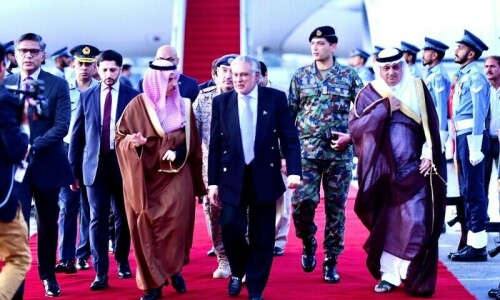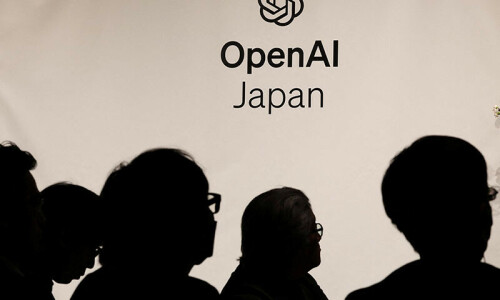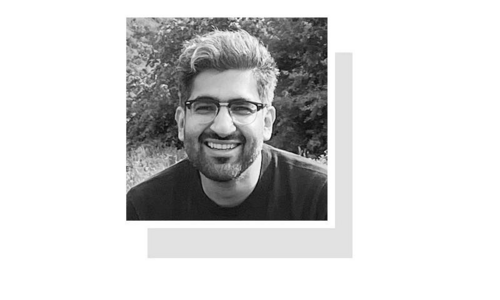ISLAMABAD: Chief Justice Tassaduq Hussain Jillani on Tuesday said it was clear from the Supreme Court’s July 31 verdict in 2009 that the constitution was violated by imposition of emergency on November 3, 2007.
A 14-member larger SC bench, headed by the chief justice, was hearing the review petition filed by former military ruler Gen (retd) Pervez Musharraf against the SC verdict which maintained the sacking of superior court judges and other actions taken by him, under imposition of emergency, null and void.
During the course of proceedings, petitioner’s counsel Ibrahim Satti apprised the court that Musharraf was given the right to make amendments in the constitution and changes were made in more than 100 articles.
The former president had issued a new oath for judges following the Provisional Constitutional Order (PCO) of 2000 and former chief justice Iftikhar Muhammad Chaudhry was also among those judges, who took oath under the PCO, he added.
Satti said the July 31 verdict had declared the proclamation of emergency as unconstitutional but it did not stated that the step was equal to breaching the constitution.
He said a reference was also filed against the ex-chief justice on March 9, 2007 while the SC ordered to restore Iftikhar Chaudhry on July 20, 2007. After the restoration of former CJ, the referring authority did not file a review petition, he added.
The petitioner’s counsel argued that the original draft of the PCO was not made a part of the court's order.
On this, Chief Justice Jillani inquired about the content of the original draft. Satti replied that emergency was imposed on November 3, 2007 upon consultation with the armed forces and the chief of the army staff.
Governors, corps commanders and the army chief were onboard regarding the decision, he added.
Ibrahim Satti argued that the July 31 verdict was declared to be void in the Iqbal Tikka case decision.
The court questioned whether Article 6 of the Constitution was to be declared as unconstitutional and ineffective.
“If any person takes steps today similar to those taken on November 3, 2007 whether the same will not be in violation of the Constitution?”
Musharraf's counsel said the November 3 step was given protection in the Tikka Iqbal case. Uopn this, Justice Saqib observed that this case decision had already been declared void.
The counsel said the emergency was proclaimed on November 3, 2007 due to the situation similar to that on October 12, 1998. However, all institutions except the judiciary were functioning as per routine on November 3.
“Whether the emergency was imposed for the judiciary only,” the court asked. “Unfortunately it is true,” Musharraf's counsel replied.
The lawyer said his client had not been given the right to present his stance in the court.
“Whether he was unaware about the case?” asked Justice Jawwad. “He knew but was not in a position to appear before the court,” said the counsel.
Satti told the court that former prime minister Shaukat Aziz had apprised Pervez Musharraf through a letter that the country was going through a constitutional crisis.
He said Musharraf issued three orders on November 3, 2007. The first order was issued as the chief of the army staff while the other regarding the judges' oath was issued as the president of Pakistan.
He said no one had claimed that Abdul Hameed Dogar was not the chief justice when he was at the helm. Iftikhar Muhammad Chaudhry was restored through an executive order on March 16 and he waited for Dogar's retirement till March 24, 2009.
Satti said when the case was initiated, Musharraf was not a party to the case. The Attorney General gave a statement on behalf of the federation that the government did not support the November 3, 2007 steps.
The chief justice remarked that the parliament did not endorse the steps taken on November 3, 2007.
Musharraf’s counsel told the court that the former president had received the notice for appearance on April 22, 2009 but he was in London due to the threats he had received from Taliban militants.
It may be mentioned here that a 14-member SC bench had declared the November 3, 2007 emergency imposed by Gen (retd) Musharraf as illegal and unconstitutional.
The court adjourned the hearing for Wednesday and directed Ibrahim Satti to complete his arguments till 11:30 am.












































